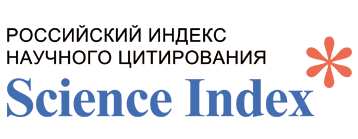STEAM AS AN EFFECTIVE TECHNOLOGY FOR TEACHING ENGLISH IN SMALL RURAL SCHOOLS
DOI:
https://doi.org/10.59102/kufil/2023/iss4pp190-199Аннотация
The research analyses the problem of teaching English in small rural schools. The article discusses the implementation of STEAM technology in small rural schools as an effective tool for engaging learners of different levels into a shared educational environment. The research discusses the importance of formation of new key skills in learning. The technology includes multicultural arts-based learning strategies and techniques across educational levels and disciplines. The study discusses the implementation of STEAM in teaching the English language in particular.
In this perspective, this article highlights art-based learning as an effective teaching approach in science, technology, engineering, arts, and mathematics (STEAM) to achieve school students' success in STEAM-based education at the secondary education level. The article suggests analysis of literature and discusses basic provisions on small rural schools of Kazakhstan. The research gives examples of the experience of teachers working at small rural schools and suggests ways of improving the current academic performance.
Ключевые слова:
Arts-based learning, multicultural learning, education, STEAM education, small rural schoolБиблиографические ссылки
On approval of the Concept for the development of higher education and science in the Republic of Kazakhstan for 2023 – 2029, available at: https://adilet.zan.kz/rus/docs/P2300000248
Dilnoza Ismoil qizi Abdukadirova. Integration of standard STEAM in English language classrooms. [Electronic resource]. Access mode: https://cyberleninka.ru/article/n/integration-of-standard-steam-in-english-language-classrooms/viewer)
Karimova B.T. STEM education - an innovative approach in modern education // Innovation Management and Technology in the Era of Globalization Materials of the V International Scientific-Practical Conference: In 2 volumes, 2018- 107 – 111.
What is STEAM education? The definitive guide for K-12 schools. [Electronic resource]. Access mode: https://artsintegration.com/what-is-steam-education-in-k-12-schools/#whysteam (03/19/2023)
Aleksankov, A. M. (2017). The Fourth industrial revolution and modernization of education: international experience. Strategic priorities, 1(13), 53-69.
Aletdinova, A.A. (2017). From the development of cognitive abilities of workers to the formation of network competencies in the digital economy. Trends in the economy and industry in the context of digitalization. St. Petersburg: publishing house of the Polytechnic University, 230-246.
Law of the republic of Kazakhstan on education https://online.zakon.kz/Document/?doc_id=30118747
On approval of the State Program for the Development of Education and science of the Republic of Kazakhstan for 2020 – 2025 https://iqaa.kz/images/doc/RK
Concept for the Development of Small Rural Schools of the Republic of Kazakhstan for 2020 - 2025
Caplan, M. (2017). Scientists for tomorrow - A self-sustained initiative to promote STEM in outof-school time frameworks in under-served community-based organizations: Evaluation and lessons learned (Conference Paper).
ASEE Annual Conference and Exposition, Conference Proceedings Volume 2017 - June, 24 June 2017124th ASEE Annual Conference and Exposition; Columbus; United States; 25 June 2017 through 28 June 2017; Code 129594.
Shunkeyeva O.A., Almurzaeva B.K., Zhaitapova A.A., Satybaldina K.T., Tulegenova Sh.I., Nauryzalina D.G. MODERN SMALL SCHOOL IN KAZAKHSTAN – THE CENTER OF SOCIO-CULTURAL DEVELOPMENT AND INFORMATION SPACE OF THE RURAL // Fundamental Research. – 2015. – No. 2-14. – pp. 3175-3179; URL: https://fundamental-research.ru/ru/article/view?id=37713 (access date: 10/30/2023).
Concept for the development of preschool, secondary, technical and vocational education of the Republic of Kazakhstan for 2023 – 2029 https://www.gov.kz/memleket/entities/edu/documents/details/451747?lang=ru
Chanthala, Ch., Santiboon, T., Ponkham, K. (2018). Instructional designing the STEM education model for fostering creative thinking abilities in physics laboratory environment classes. AIP Conference Proceedings. Vol. 1923, 030010-1–030010-12.
Dagdilelis, V. (2018). Preparing teachers for the use of digital technologies in their teaching practice. Scopus Research in Social Sciences and Technology, 3(1), 109-121. Retrieved from http://ressat.org/index.php/ressat/article/view/345
Received: 10.11.2023
Опубликован
Как цитировать
Выпуск
Раздел
Лицензия
Copyright (c) 2023 Bulletin of Shokan Ualikhanov Kokshetau University Philological Series

Это произведение доступно по лицензии Creative Commons «Attribution-NonCommercial» («Атрибуция — Некоммерческое использование») 4.0 Всемирная.











